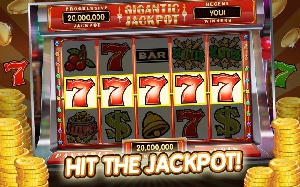At age eleven, peer pressure and truancy pushed young Ahmed of Madina into gambling and he quickly became expert at it.
Rather than being in class for French and Mathematics lessons – subjects he hated at school – young Ahmed would sneak out to his gambling lairs where he gradually honed his skills at gaming.
He became so good at it to the extent that adults would pay him (GHS5 or GHS10) to gamble on their behalf. They never shared the booty with him though. As a young boy, the pittance they paid him from their jackpot was always enough to keep him happy.
So young Ahmed, since 2011, was not only reveling in what became a strong addictive habit, but also making money from such leisure activity.
Despite being a minor, Ahmed told Prince Minkah on the Executive Breakfast Show on Class91.3FM on Wednesday 27 July 2016 that the gambling houses always allowed him in because he became a known face within those circles and his prowess at it made him famous.
Gaming houses gradually replaced and became Ahmed’s school until his mother got wind of it through some of his peers whom she paid to snitch on her son. From then on, she had to personally take her gambler-son to school every single day to ensure he did not veer off to his gaming havens. At a point in time, Ahmed’s gambling got so intense that he had to keep stealing from his mother to feed the habit anytime his lunch money did not suffice for that purpose.
Because of his gambling habit, which caused him to skip school so many times, Ahmed, at age 16, is now in form one in Junior High School (JHS), when he would have been in the second year of Senior High School (SHS).
That is the story of Ahmed. And several hundred of minors in Ghana can identify with this problem. They have become gamblers at a very tender age due to the proliferation of gaming houses in Ghana – a situation, which has led to a call for a ban on sports betting.
One of the protagonists championing the ban is a former Vice Rector at the Ghana Institute of Management and Public Administration (GIMPA), Prof John Kobla Aheto.
“From my point of view, gambling should not be allowed in Ghana. We must revoke all the issued licenses until we are prepared”, he said on Class FM’s Executive Breakfast Show on Tuesday July 26, 2016.
Sports betting, which includes making predictions about football matches in the top leagues of Europe, usually, sees persons placing bets on the outcome of games, which, if successful, results in a win of thousands of cedis.
The trend is catching on with a lot of the youth, who see it as a quick means of making cash.
Prof Ahetor, who is not enthused about gambling, told host Prince Minkah that the sports betting phenomenon is new in Ghana and the cumulative negative effects are not yet being experienced, so authorities are taking things for granted. “If Ghana was seriously oriented in terms of value systems, we will not have licensed these things. As a morality issue, we should have said no and not allowed it just like some states in the USA [aside from Las Vegas and some few others]. Why should we [Ghana] allow it?” he questioned.
For him, Ghana need not be blinded by the economic aspects of the gambling industry because the damages are far-reaching. “We are not developed; we do not have excess money, gambling flourishes in societies with excess money. There are some savings of some useless money that one can toss around”.
He criticised the pioneers for not anticipating the problems that could be associated with the act in ten years and beyond. For him, legislators and authorities, who passed such laws, must be condemned for not doing diligent checks before passing regulations to support gambling. “We are not pausing to think about the crime it could bring into the country. The people who are licensing have not stopped to think. They have not researched, investigated and studied the criminal aspect of this particular form of business. I was shocked the first time I saw a casino sign and asked myself: ‘In Ghana?’”
The former Dean of the University Of Ghana Business School indicated that “there is too much focus on rights and not responsibilities and rule of law”. He advised that everybody owes a duty to society and must not be carried away by “quick fixes and easy ways to make money” without considering the effects of such businesses on society.
He advised Ghanaians to stop copying blindly adding that “not everything that takes place in western countries is worth replicating in our society”.
Africa now fertile ground for sports betting
Edem Kumordzi, who established Quick Bet, the first betting gaming centre in Ghana, explained that the idea behind the introduction of his online centre was to create a fun avenue for the youth and was not for profit. He said it covered any aspect in life where winners gained points.
According to him, the money-making gamers are now exploiting opportunities across the globe and establishing branches in countries where regulations governing their operations are loose.
For him that has contributed to the proliferation of sports gaming centres in Africa and Ghana. Operators of such businesses target strategic locations where they can get the masses, especially young people to patronise the centres and the various games offered. “They have been getting heavier regulations in many countries, so they started looking at where to go to keep making money and not pay taxes without too many restrictions. Africa was a virgin land for them and from their side, it is good business for them because everybody is looking to make quick money,” he explained.
He further noted that it was easier for them to set up their houses “as long as those who are supposed to make the laws are pretty clueless about what is going on and how it affects the society in general”.
For him, he was expecting authorities to implement tighter regulations in order to control betting operators and prevent the adverse effects on society.
For example, he said, there could be age restrictions, restrictions on frequency of gaming as well as the amount of money that could be wagered, so that “it does not turn into an addiction,” which could lead to other dangerous situations.
Mr. Kumordzi said gaming houses only care about money and some flout the laws by allowing minors to engage in such activities. He noted that there are no means of ensuring minors do not take part in gambling.
According to him, the gaming houses “strategically set up in communities where they know they will not get a lot of backlash with many people engaging in the activities”.
In developed countries, he added, the operators strictly check identification cards of participants and some cases request for social security numbers to track and make sure gamers are not engaged in money laundering activities.
Betting big avenue for crime
For his part, security analyst Nana Owusu Sekyere, holds a strong view that a betting industry cannot be set up without analysing the security implications on society. For him, common laws in the country are not obeyed and setting up gambling industries can escalate the situation.
“Even littering is an issue, we do not care about the environment. So how can we abide by [sophisticated] laws in the betting industry?” he questioned. He added that betting thrives in an economy that thrives and Ghana is not ready, based on the country’s economic status. He further explained that “when people cannot find money in our economic situation to bet due to their addiction, they will turn to robbery to raise money to continue betting”.
For him, “the betting industry creates a platform for organised crime to fester. It is also a safe haven for them [criminals] to play games and use their illegal money to gain ‘legal money’. Betting also changes psyche-social behaviour of society because an addicted person, who continues to lose, is not a happy person, which affects so many people around him creating an insecurity situation in society”. In his view, Ghana is not ready for the betting industry. It is just like “building a house without a plan”.
General News of Wednesday, 27 July 2016
Source: classfmonline.com

















